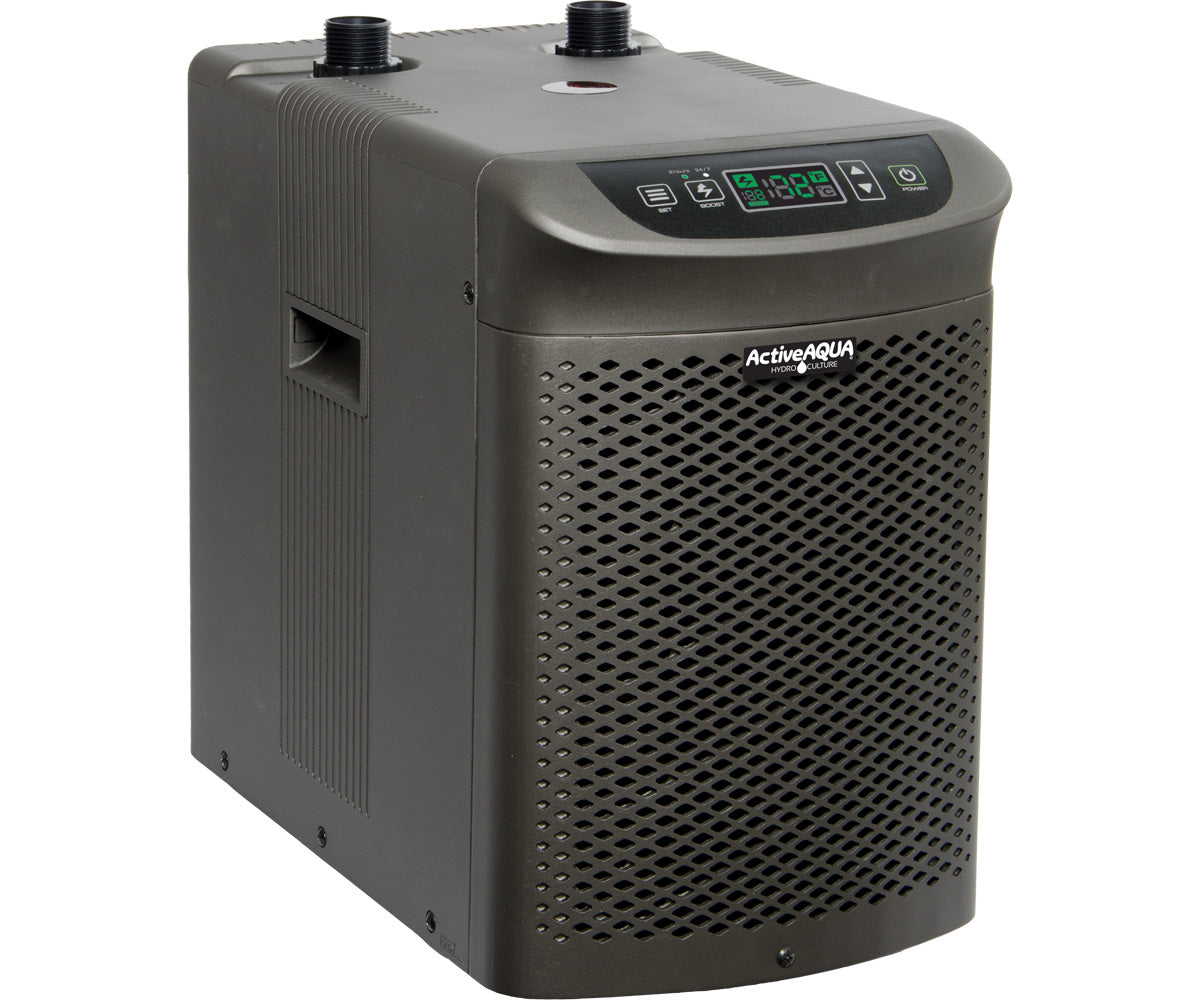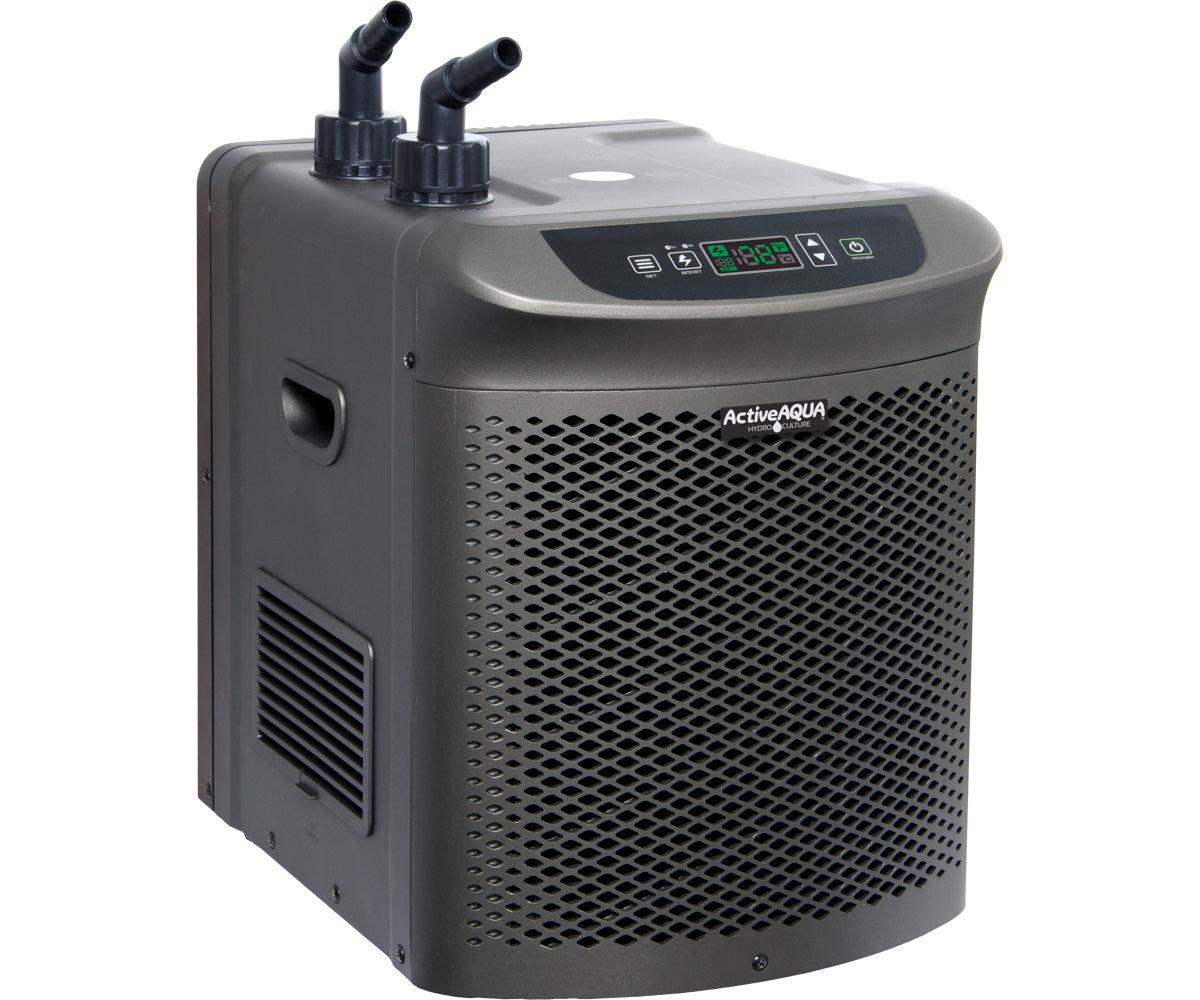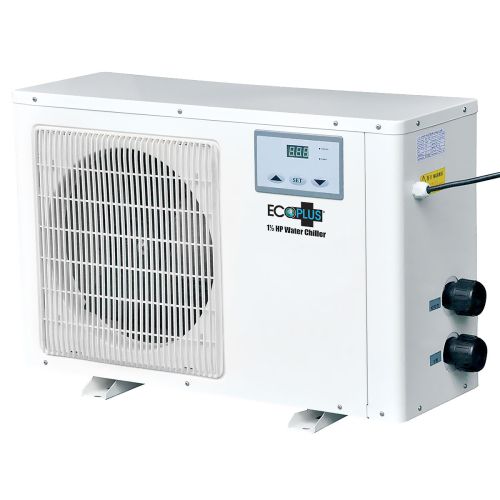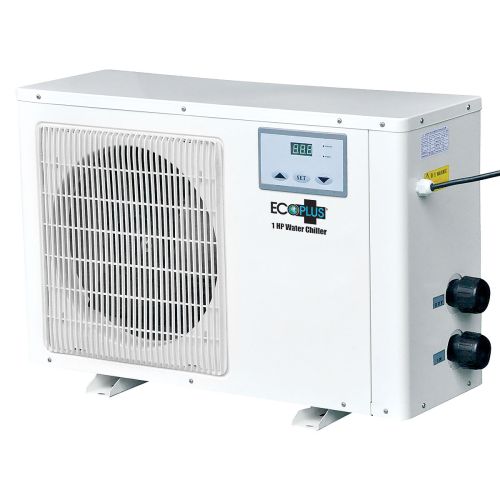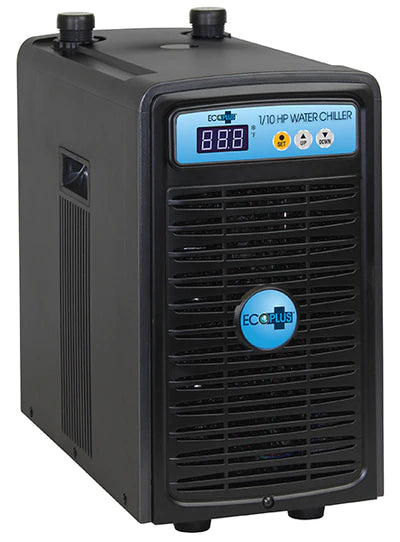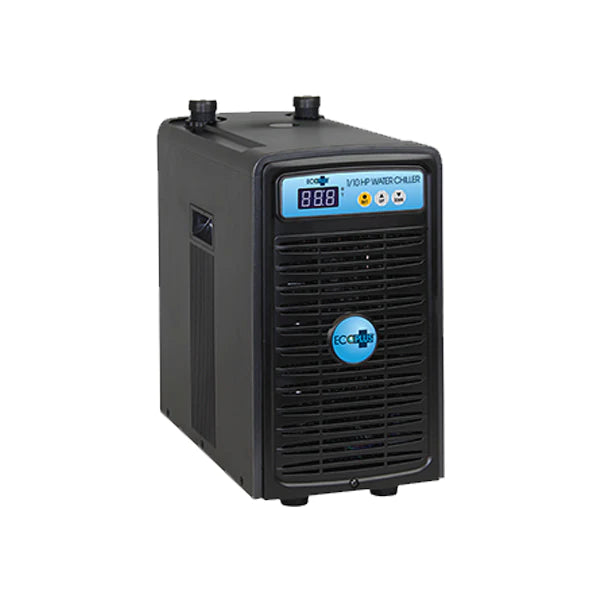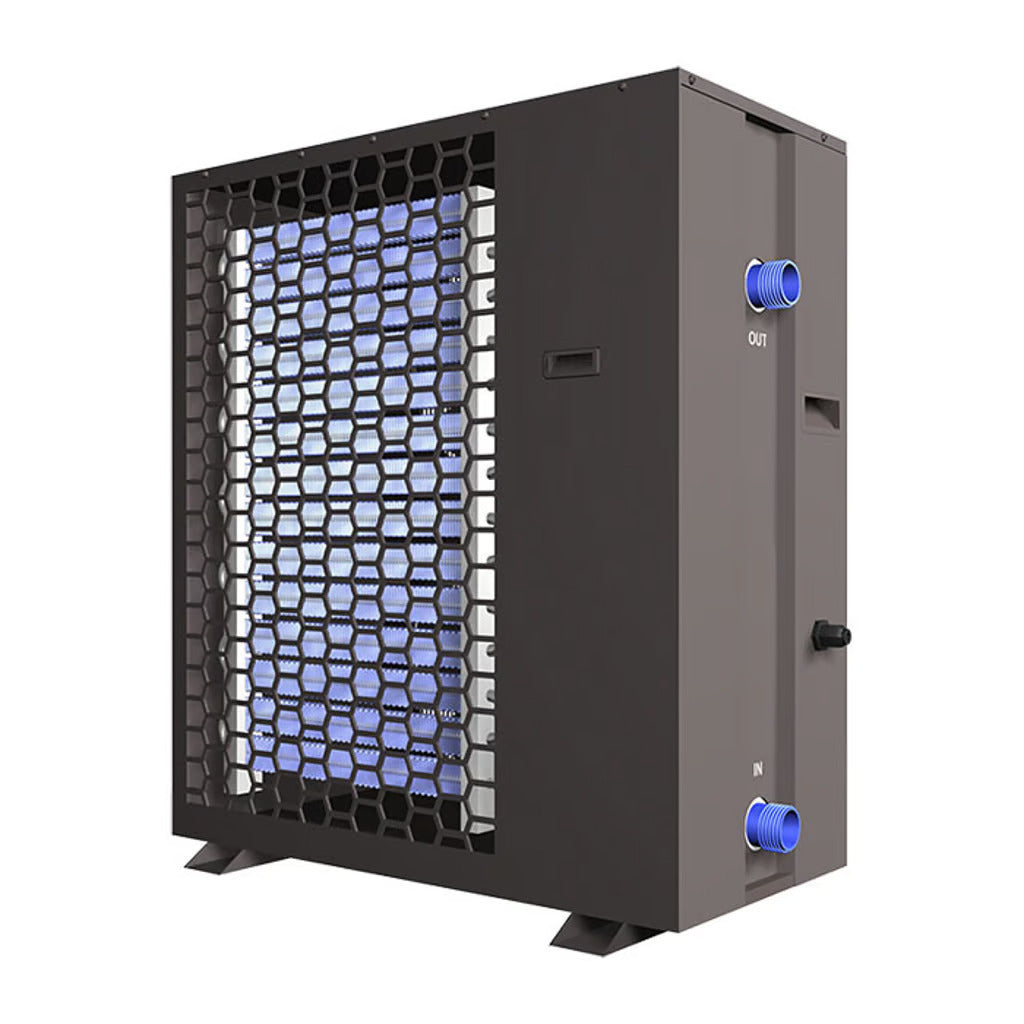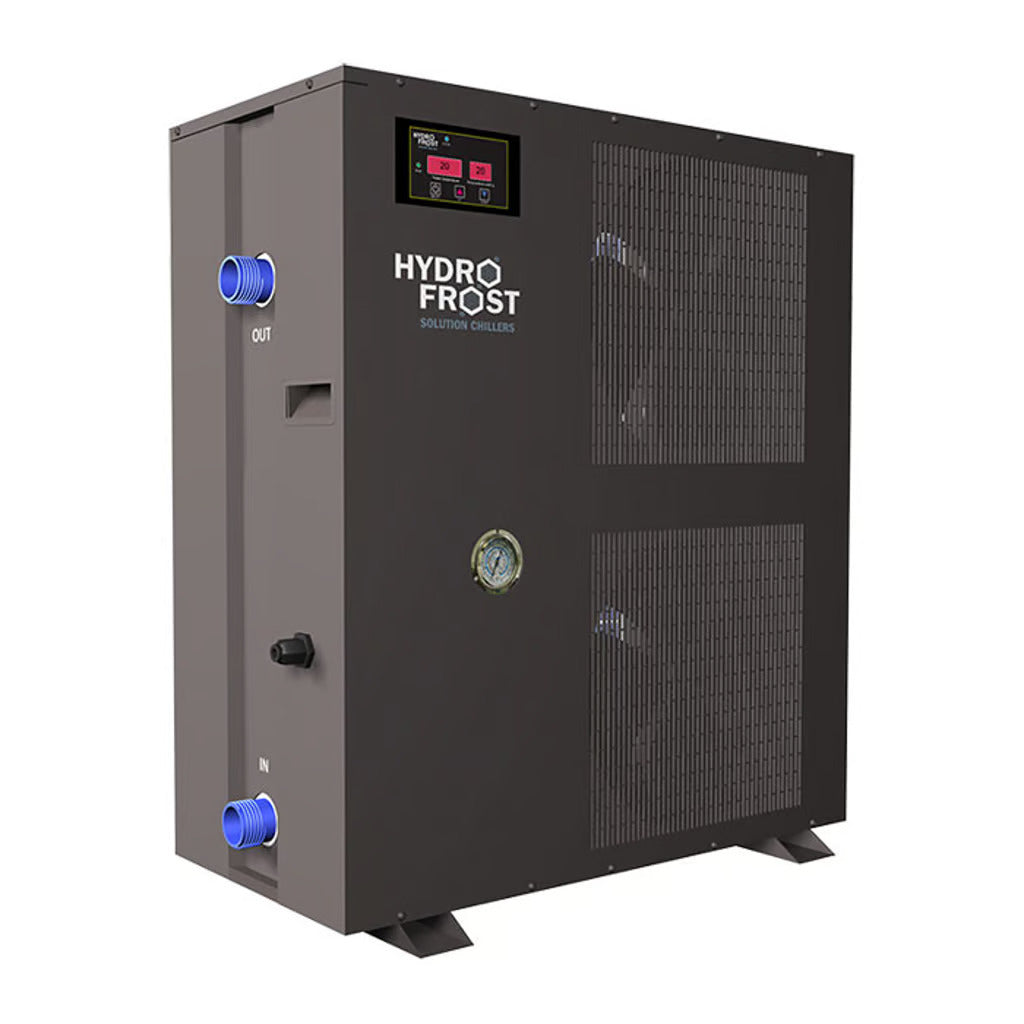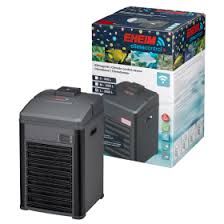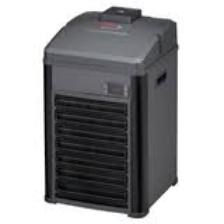Filtres
Water Chillers

Water chillers are mechanical systems used to cool water. They are commonly used in industrial and commercial settings to provide chilled water for air conditioning, process cooling and other uses. In addition to cooling the water, most water chillers also have an integrated heat exchanger, which allows them to transfer heat from the cooled water to a different fluid.
Water chillers come in a variety of sizes and styles, from small residential units that can be installed in homes or businesses, to large commercial-grade models designed for industrial applications.
Water chillers play a vital role in various industries, providing an efficient means to cool water for multiple purposes, from residential cooling to industrial applications. As a mechanical system, their design and operation can be intricate. To simplify and present a structured overview of the diverse aspects of water chillers covered in our blog post, we've compiled the following table. It breaks down the key topics and details for quick reference:
| Water Chiller | Details |
|---|---|
| Introduction |
|
| How They Work |
|
| Benefits for Ice Baths & Cold Plunge |
|
| Types of Chillers |
|
| Applications |
|
| Importance of Temperature Control |
|
| Optimizing Plant Growth |
|
| Factors in Choosing a Chiller |
|
| Why Buy from Canada Grow Supplies |
|
| Maintenance & Troubleshooting |
|
| Energy Efficiency |
|
| Advancements in Technology |
|
| Future of Water Chillers |
|
How Water Chillers Work
Water chillers work by circulating a refrigerant through a closed-loop system. This allows them to cool the water down while maintaining a constant temperature. The refrigerant is passed through an evaporator coil where it absorbs heat from the surrounding air before being compressed by a compressor.
The hot gas is then cooled by passing through a condenser coil before being returned back into the evaporator coil, thus completing the cycle. This cycle is repeated as necessary until the desired temperature is reached.
In addition to cooling the water, most water chillers also have an integrated heat exchanger, which allows them to transfer heat from the cooled water to another fluid. This makes them ideal for industrial and commercial applications, such as air conditioning or industrial process cooling of products.
Exploring the Benefits of Water Chillers for Ice Baths and Cold Plunge
Exploring the benefits of water chillers for ice baths and cold plunge can be a great way to improve your overall health and wellbeing. Water chillers help cool the body down quickly and efficiently, while providing a comfortable environment in which to relax and unwind. Whether you're looking to relax after a long day at work, or just want to take advantage of some cooling therapy, cold water chillers are an ideal solution.
Not only do they provide instant relief from heat exhaustion, but they can also help reduce inflammation, soreness, and even minor aches and pains. Plus, with their adjustable temperature settings, it's easy to find the perfect temperature ranges for your needs. So why not explore the benefits of water chillers for ice baths and cold plunge today?
Types of Water Chillers
Water chillers are an essential part of any home's cooling system, providing a reliable and efficient way to keep your home cool and comfortable. There are several types of chiller solutions available, depending on your needs and budget. Air-cooled water chillers use air to remove waste heat from the water before it is cooled.
This compact type of chiller is generally used in residential applications, as it is easy to install and requires minimal maintenance. Heat pump water chillers use electricity to move heat from one location to another, while evaporative chillers take advantage of evaporation in order to cool down the current temperature of the incoming liquid.
Finally, absorption chillers use a chemical process to absorb heat from the surrounding environment. Each condenser type of chiller has its own advantages and drawbacks, so be sure to research all options before making your purchase.
Applications of Water Chillers
Water chillers are used in a variety of applications, from residential to commercial and industrial. In a residential setting, water chillers provide efficient cooling for air conditioners, swimming pools and hot tubs.
In the commercial sector, they are commonly used in food processing, data centers and other large-scale operations that require reliable cooling solutions. Industrial applications include chemical manufacturing, pharmaceutical production and refrigeration systems.
The Importance of Temperature Control in Water Chillers
Temperature control is a critical aspect of water chillers, as it directly affects the efficiency and effectiveness of the cooling process. Maintaining a consistent chilled water temperature ensures that the chiller operates at peak performance, and helps to prevent damage to equipment or products.
Precise temperature control also allows for customization and optimization of cooling processes, providing the ability to meet specific requirements for different applications. Inaccurate temperature control can lead to decreased efficiency, product quality issues, and increased maintenance costs.
Optimizing Plant Growth with Water Chillers
Water chillers provide an ideal way for growers to optimize plant growth. By controlling the temperature and humidity of growing environments, water chillers help ensure that plants receive the optimal conditions for healthy growth. They are especially useful in greenhouses or other indoor growing spaces where temperatures can fluctuate from day to night.
For outdoor spaces with extreme seasonal temperature changes, water chiller plants can be used as part of a comprehensive cooling system to keep soil temperatures in check and reduce damage caused by sudden cold snaps. Furthermore, they can also be used in hydroponic systems to regulate the clean water temperature and improve nutrient absorption cycle.
Factors to Consider when Choosing a Water Chiller
When setting up a hydroponic or aquaponic system, one of the essential components is a water chiller. A good water chiller will ensure that your plants are kept at an ambient temperature for efficient nutrient uptake and healthy growth. When choosing a water chiller, there are several factors you need to consider.
First, consider the size of your system and how much cooling capacity range you need. Make sure to get a chiller that has enough power to handle the volume of water in your system. Additionally, look for features such as digital temperature control and adjustable speed settings to give you more control over how quickly your water cools down.
You’ll also want to consider the noise level of any potential chillers you’re looking at. Look for ones that operate quietly without producing too much vibration or noise. This will help keep your growing environment peaceful and tranquil while still providing effective cooling power.
Finally, make sure that the chiller accessories you choose is easy to install and maintain so that it continues to work properly over time with minimal effort on your part. A quality water chiller can be an invaluable asset for any hydroponic or aquaponic grower, so make sure to do your research before making a purchase!
Why Canada Grow Supplies Is The Best Place To Buy Water ChillersCGS is the perfect place to buy a hydroponic water chiller - because you can be certain that all of the products available on our site are of the highest quality. Not only will you get a dependable product, but it’s also backed by its warranty - ensuring your investment is protected for at least one year.
This peace of mind comes from brands like Eco-Plus and Active Aqua, offering exceptional quality and efficiency with their chillers. Their chillers are further enhanced with protective systems from overcurrent and LCD displays for easy use.
Maintenance and Troubleshooting of Water Chillers
When it comes to maintenance and troubleshooting for water cooled chillers, it's important to stay proactive. Regularly inspect the chiller systems for signs of wear or damage and take care of any issues immediately. Additionally, make sure to keep up with scheduled maintenance, such as periodic cleaning, lubrication and filter changes. This will help ensure that your equipment is in its best condition and running efficiently.
It's also important to be familiar with common troubleshooting techniques so that you can address any problems quickly and effectively. Start by checking the power supply, thermostat settings, fluid levels, and filters. If these seem fine but the chiller resources section still isn't working properly, contact a professional repair service or replace the unit altogether.
Energy Efficiency of Water Chillers
Energy efficiency is an important factor to consider when it comes to water chillers. In general, the more efficient a chiller is, the more affordable cost-effective and environmentally friendly it will be. To maximize energy efficiency in your water chiller, start by making sure that the unit is correctly sized for your particular application.
Additionally, consider installing a Variable Frequency Drive (VFD) on the compressor motor to provide better control over energy consumption. Finally, ensure that you keep up with regular maintenance and inspections of your chiller efficiency, such as checking the filters and lubricating moving parts. With these simple steps, you can help reduce energy costs and maintain a healthy environment.
Advancements in Water Chiller Technology
Advances in water chiller technology have made it easier than ever to keep cool and save energy. From the latest high efficiency designs to simple retrofit solutions, modern water chillers can help reduce your chilling costs while providing a comfortable environment for your staff or guests.
Newer systems are often quieter and more efficient than their predecessors, so you won’t have to worry about excessive noise or worrying about how much power you're using. Additionally, many of today's chillers come with advanced features such as automatic temperature regulation and self-cleaning capabilities.
Future of Water Chillers
The future of water chillers is bright. As technology advances, chiller configurations will become increasingly more efficient and feature-rich. New designs promise to reduce energy usage while providing a comfortable environment in any setting. Many new systems are expected to feature self-regulating temperature controls and automated cleaning capabilities, making them even easier to use and maintain.
Other advancements such as variable speed pumps, real-time monitoring systems, and advanced diagnostics are also becoming available in modern water chillers. This will allow users to adjust settings with ease and ensure their equipment is running at optimal efficiency. Additionally, many of these systems offer integration with smart home automation platforms for enhanced convenience.



